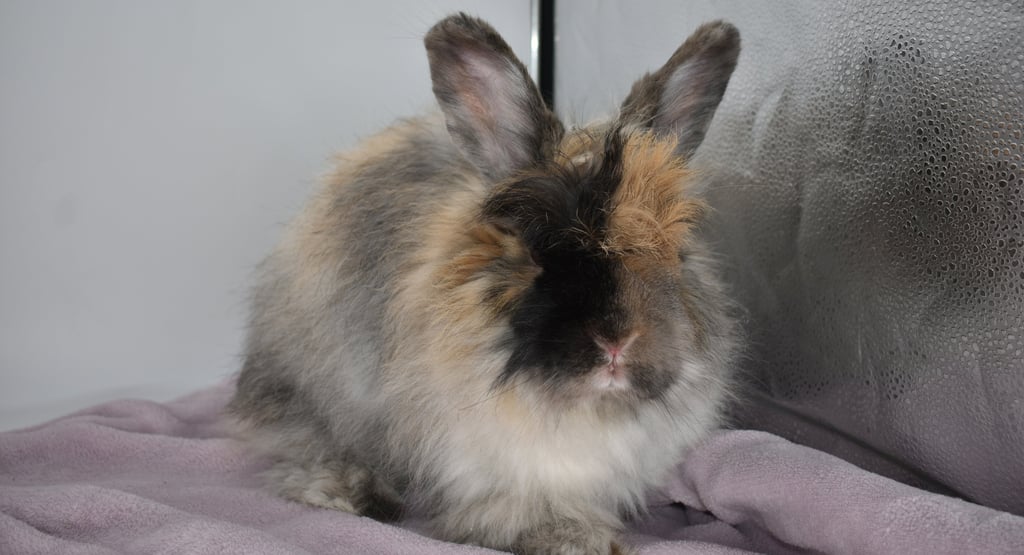Understanding Why Rabbits May Bite
When caring for a beloved pet rabbit, actual bites (not to be confused with nips) are a very rare behavior. Stress or pain can induce atypical responses. This is an overview. We will delve into the topic more deeply in future posts.
Amy J
3/20/20253 min read


Introduction to Rabbit Behavior
When you think of pet rabbits, you might imagine fluffy creatures hopping around happily. However, one surprising behavior that some rabbit owners encounter is biting. As someone who has cared for hundreds of rabbits over the years, I’ve experienced a rabbit bite firsthand only a couple of times. It’s essential to understand that a true rabbit bite, not to be confused with a nip, is a significant behavior. This act is intentional and typically occurs when a rabbit feels threatened or vulnerable.
Common Causes of Biting
So, what triggers this biting behavior in rabbits? First, let’s emphasize that rabbits are social creatures that require trust and a safe environment. If they sense danger or feel trapped, they might resort to biting as a defensive mechanism. A few common causes of this behavior include:
Fear or Anxiety: Rabbits that have been neglected or mistreated in the past can develop fear-based responses. For instance, one of the rabbits I encountered was a neglected bunny that had been returned for rehoming; it was clear that the rabbit felt unsafe around new people. Because of her physical needs, I had to push forward with treating her. Her nails were painfully long and needed to be trimmed. Because of a lack of grooming in her previous home, she had developed mats of fur around her bottom, which led to feces and urine being trapped close to her skin. To say that she was in pain was an understatement. I had to clean her up and treat her urine scald so she would begin to heal. Once she realized my intentions were to help her, she began to relax. It took a fair amount of time to earn her trust and help her to understand that she was safe She only bit me that one time.
Lack of Socialization: Rabbits need to be socialized from an early age. If they haven't interacted with humans or other pets, they may see people as threats, leading to a defensive bite when they feel cornered.
Boundary Issues: Each rabbit has its own comfort zone. If you overstep these boundaries, they might react aggressively. I learned this the hard way with a particularly aggressive rabbit who felt his space was being invaded. He was a new buck we had brought home and obviously hadn't been handled enough when he was younger. We were strangers to him and I moved too quickly for his comfort when he was just getting settled in. That bite was well-deserved and I apologized profusely for not listening to his signals.
Hormonal issues: Young rabbit does can become cage defensive just before and after they are spayed, due to the increase of hormones being produced. The same can be said of mother does who have just kindled a litter. The rabbit becomes especially cautious and alert to any perceived dangers or changes in their environment,
How to Prevent Biting
Understanding the reasons behind a rabbit bite can help prevent it from happening. Here are some tips to build a healthy relationship with your furry friend:
Establish Trust: Spend quality time with your rabbit daily, allowing them to approach you when they feel comfortable. Avoid sudden movements that could startle them.
Read Their Body Language: Rabbits communicate through body language. Pay close attention to their ears, posture, and overall demeanor. If they seem tense or agitated, give them space.
Respect their Boundaries: Never force your rabbit to be held or petted if they are not ready. Let them dictate the interaction to help build confidence and trust.
In summary, while it can be distressing to experience a rabbit bite, it’s typically a sign of fear, distrust, or discomfort. By taking the time to understand your pet’s needs and working on building a trusting relationship, you can significantly reduce the chances of aggressive behavior. Each rabbit is unique, and with patience, you can foster a loving and trusting bond with your furry companion.
